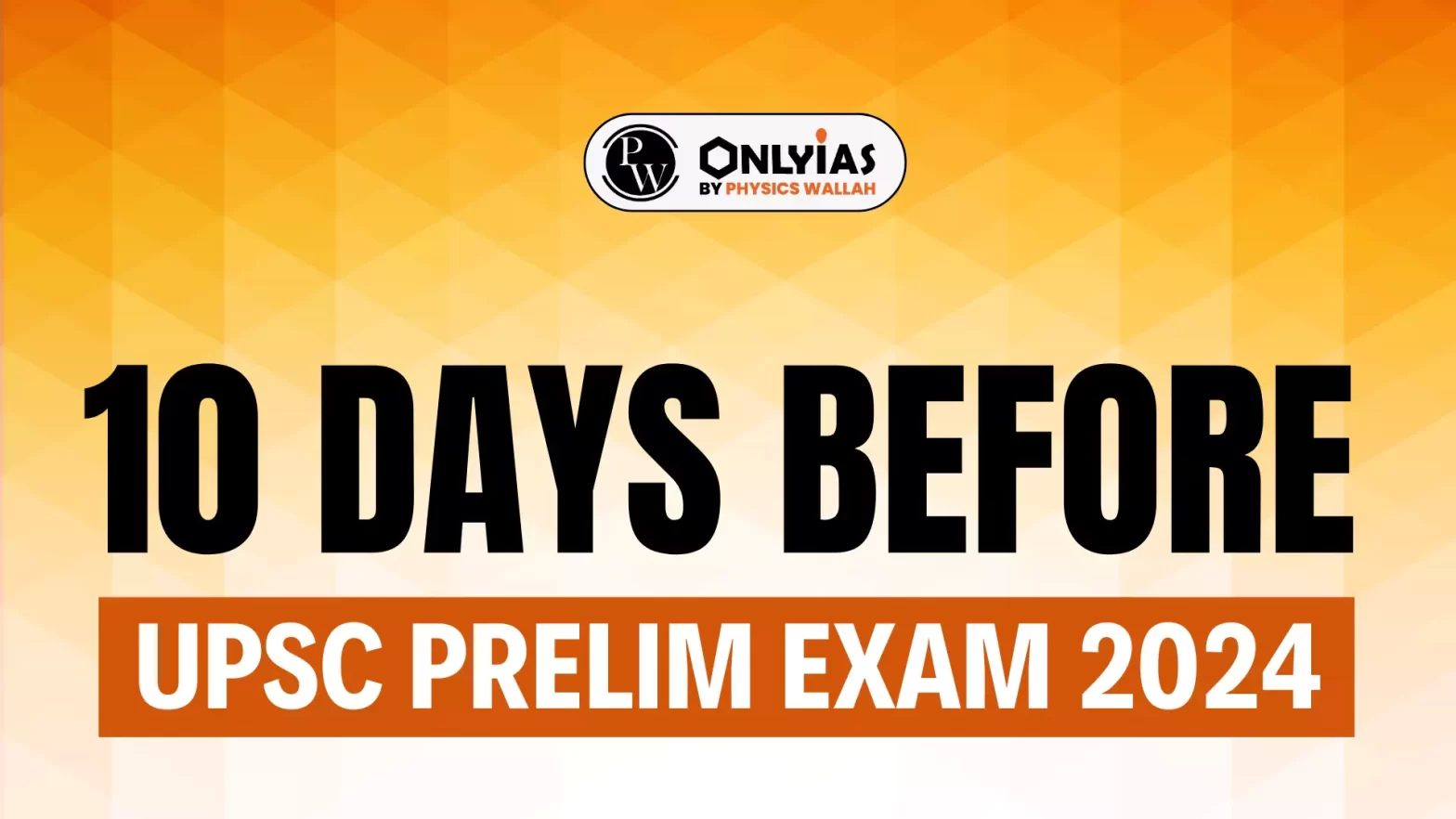Prepare effectively for UPSC Prelims 2024 with this comprehensive 10-day study plan. Stay focused, review diligently, and boost your confidence!

In India, one of the most demanding tests is the UPSC Examination. It serves as a foundation for careers in esteemed civil services, such as the IAS, IPS, IFS, and other civil service posts. Although the UPSC exam path is lengthy and complicated, success is feasible if you are prepared to put in the necessary effort and commitment. You must dedicate the final 10 days leading up to the UPSC Prelims exam to reviewing, honing your skills, and perfecting your preparation.
As per the announcement of the UPSC commission, the UPSC Prelims 2024 will be held on June 16, 2024. Here are the detailed tips and strategies to follow in the last 10 days before the UPSC Prelim:
You may maximize your preparation and boost your chances of passing the UPSC IAS Prelims test by adding these extra study techniques to your 10-day study plan. All during your journey, keep in mind to be organized, determined, and cheerful. Wishing you luck!
Physics Wallah is offering you a golden chance to boost your preparation by enrolling in our flagship test series!
| UPSC Related Links | |
| UPSC Full Form | Daily Prelims Questions |
| IPS Full Form | IRS Full Form |
| IFS Full Form | UPSC Syllabus |
| UPSC Mains GS 1 Syllabus | UPSC Mains GS 2 Syllabus |
Revisions should have been the main focus for the previous five days. Every day, review two topics and practice CSAT questions.
Answering past year's exam questions facilitates time management by illuminating the question format and degree of difficulty. It is advised to try no less than the last three years' question papers.
The amount of time needed to study hard for the IAS test varies, however, it usually takes one to two years. This makes it possible to study the complete syllabus in detail as well as practice and revise the same.
When planning your IAS preparation, flexibility is essential because individual preparation schedules may vary according to past experiences and learning modes.
<div class="new-fform">
</div>